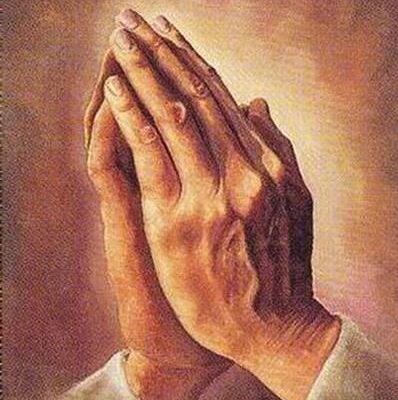VATICAN CITY (CNS) — Halfway through the Synod of Bishops, Pope Francis and synod participants prayed that God would “remove the divisions between Christians” so that they could proclaim the Gospel together.
The pope presided over a candlelight vigil Oct. 11, the anniversary of the opening of the Second Vatican Council in 1962, and texts from council documents introduced the prayers of praise and the prayers of petition.
The synod participants at the prayer service included the 16 “fraternal delegates” representing Orthodox, Anglican and Protestant churches, as well as the Rome-based representatives of the Anglican, Methodist and Reformed churches to the Holy See and other Christian ministers and faithful in the city.
Pope Francis did not read the meditation he prepared for the service, although it was distributed and published on the Vatican website.
Pope Francis listens as clergy of other churches read prayers during an ecumenical vigil with participants in the Synod of Bishops Oct. 11, 2024, in the Square of the Roman Protomartyrs at the Vatican. (CNS photo/Vatican Media)
Halfway through the Synod of Bishops, Pope Francis wrote, participants wanted to “express our shame at the scandal of division among Christians, the scandal of our failure to bear common witness to the Lord Jesus.”
“This synod is an opportunity to do better, to overcome the walls that still exist between us,” the pope wrote.
The vigil took place in the Square of the Roman Protomartyrs, just south of St. Peter’s Basilica, which is the site where St. Peter and other Christians were martyred in the first century under the Emperor Nero.
The setting, the pope wrote, should “remind us that today, too, in many parts of the world, Christians of different traditions are laying down their lives together for their faith in Jesus Christ, embodying an ecumenism of blood.”
“Their witness speaks more powerfully than any words, because unity is born of the cross of the Lord,” Pope Francis said.
Noting the anniversary of Vatican II, he said the council “marked the official entry of the Catholic Church into the ecumenical movement,” which was begun by mainline Protestant churches out of a conviction that the lack of unity among Christians was harming their ability to preach the Gospel.
The goal of the work for Christian unity is the same as the goal for the synod on synodality, Pope Francis wrote. Both are focused on the mission Jesus gave to all his disciples to share the good news of salvation with everyone.
Led by children, Pope Francis arrives for an ecumenical prayer service with participants in the Synod of Bishops Oct. 11, 2024, in the Square of the Roman Protomartyrs at the Vatican. (CNS photo/Vatican Media)
And, he said, in both ecumenical dialogue and the synodal process, “it is not so much a matter of creating something as it is of welcoming and making fruitful the gift we have already received” and sharing God-given gifts with each other for the benefit of all.
“Just as we do not know beforehand what the outcome of the synod will be, neither do we know exactly what the unity to which we are called will be like,” he said. However, Christians know that unity will be a gift of the Holy Spirit, and it will not destroy all differences between them, but allow diversity to enrich everyone.
Like the effort to make the Catholic Church more synodal — marked by respectful listening to the Spirit and each other and by a shared commitment to mission — the search for Christian unity, the pope said, “is a journey: it grows gradually as it progresses. It grows through mutual service, through the dialogue of life, through the cooperation of all Christians that ‘sets in clearer relief the features of Christ the Servant.'”
“We need to pursue the path of unity by virtue of our love for Christ and for all the people we are called to serve,” Pope Francis wrote. “As we travel along this path, let us never allow difficulties to stop us! Let us trust the Holy Spirit, who draws us to unity in the harmony of a multifaceted diversity.”
